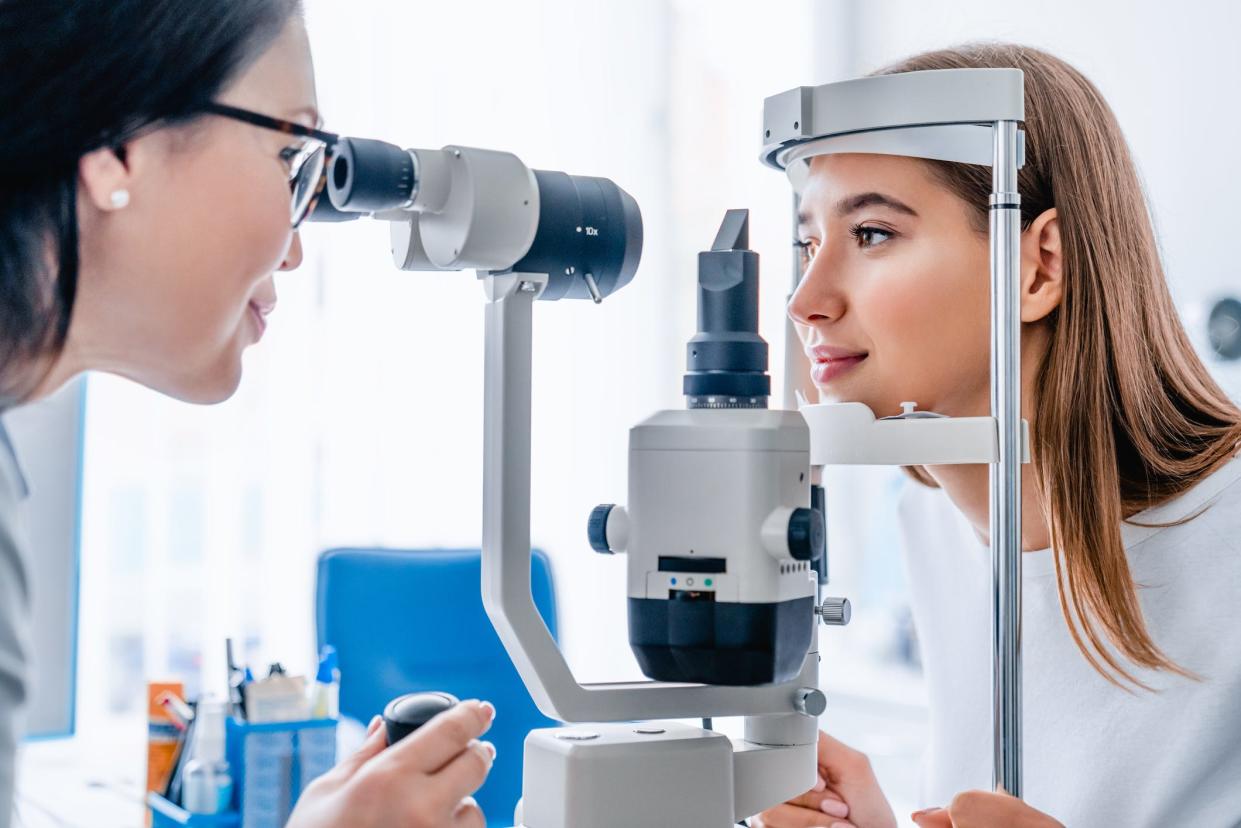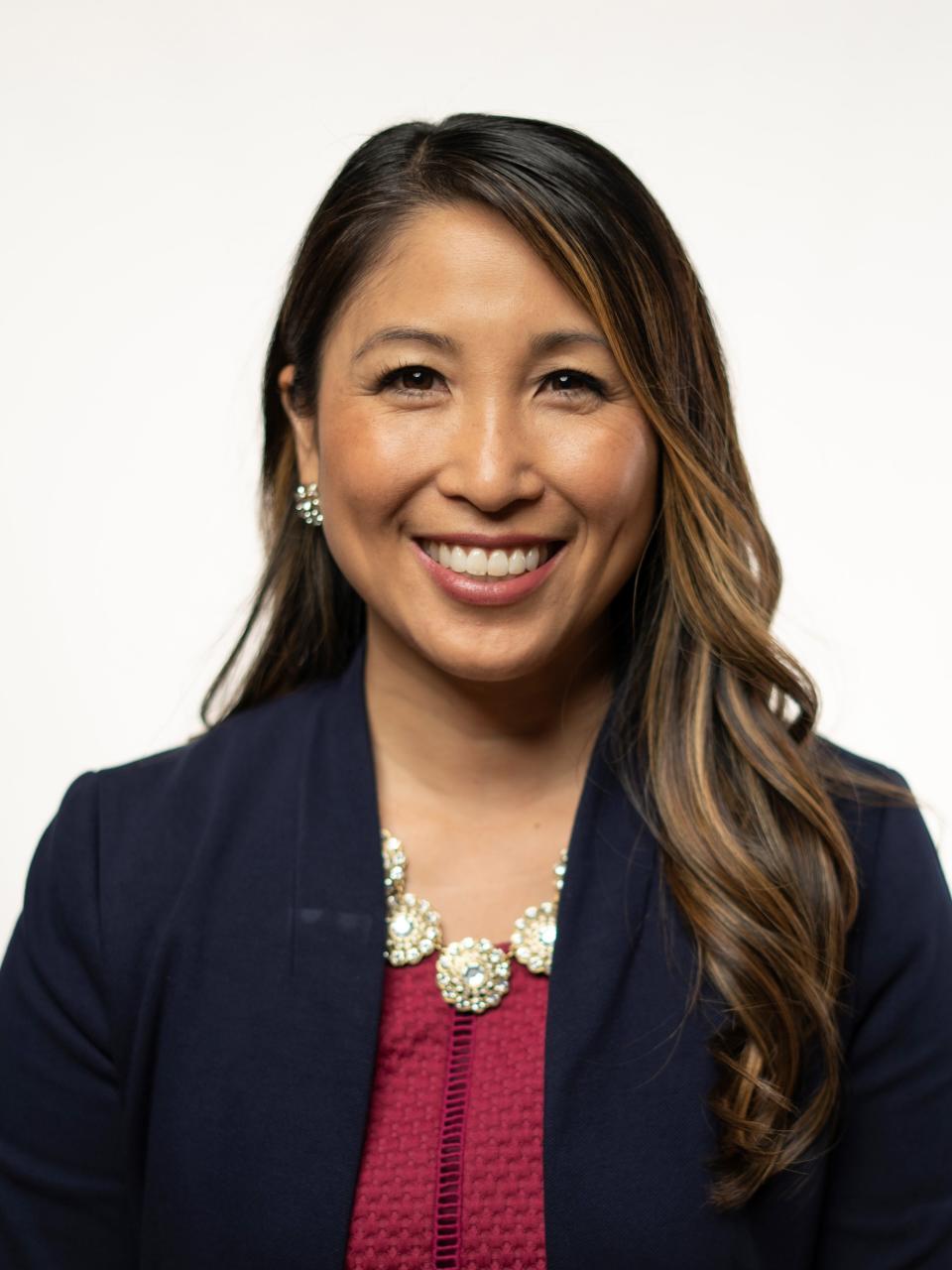Dr. Charissa Lee: 'Prioritize your eyes' for optimum well-being at every age

Eye exams are about more than vision. In fact, a comprehensive eye exam can detect over 270 different medical conditions — from diabetes to heart disease. Despite the overwhelming number of benefits an exam provides, only 1% of people know the benefits of getting one.
It’s even more critical for children. A recent study indicated that children with vision impairment showed significantly greater symptoms of depression and anxiety.
While many schools conduct routine vision screenings for students, these exams typically do not examine all aspects of visual function and ocular health. School screenings are a good start, but it is important for a child to get a comprehensive exam by an eye care professional to evaluate their overall eye health and determine if their eyes are working properly together.
Changing lives: Who are this year's Jacksonville health care volunteer champions?
Focus on pneumonia: Respiratory illness in children can lead to hospitalization, death
It can be difficult for children to voice eyesight issues for many reasons. A child may think their eyesight is satisfactory because they can read the letters on an eye chart, but the question becomes twofold: First, how well is the child actually seeing? Second, are both eyes seeing well and working together?
A child may have no difficulty seeing but, under the surface, the eyes are not cooperating as they should be. At times, only one eye is functional and the brain is compensating for the work of the other eye, leading the child to believe his or her eyes are fine when there is actually an underlying issue.
That’s why it’s important to consider a comprehensive eye exam for your child, which offers a more accurate indication of their overall health and function. Eye care professionals are often the first health care professionals to detect chronic medical conditions, including symptoms related to mental well-being.
The optic nerve connections formed from birth until six to nine years of age are dynamic. Meaning, that the earlier something is caught in that stage of the connection process, and the earlier intervention can be enacted, the better off the outcome will be as children grow into adulthood. Untreated eye conditions in childhood can increase your risk of developing conditions such as retinal detachment, glaucoma, macular degeneration, and cataracts later in life.
Here at Johnson & Johnson Vision, we are dedicated to redefining healthy sight for life and that includes letting the world know to “Prioritize Your Eyes.” Prioritize Your Eyes is our worldwide effort to raise awareness about the connection of eye health to overall health. The mission is to encourage everyone to take the single most important step to protect their eyes — getting a comprehensive eye exam.
Thriving despite the odds: After devastating diagnosis, Jacksonville couple thankful they chose life for Charlotte
Letters: Proposed Medicare changes a bad sign for both doctors and patients
If someone waits until their vision is blurry to see an eye care professional, it may be too late. Certain eye diseases can easily go unnoticed, as many do not create symptoms on the surface. And, just because someone sees well doesn’t mean that person has healthy vision. Comprehensive eye exams are vital to your overall health as they can help with early detection of conditions that may be overlooked.
According to the American Optometric Association, a child can have his or her first eye exam between six to 12 months of age. Even if your child is not showing challenges with his or her eyesight, consider taking them for a comprehensive eye exam. Find a local eye doctor near you — it can be a simple step that provides comfort in knowing your child’s vision and eye health are being managed.

Dr. Charissa Lee, North America Professional Affairs, Johnson & Johnson Vision
This guest column is the opinion of the author and does not necessarily represent the views of the Times-Union. We welcome a diversity of opinions.
This article originally appeared on Florida Times-Union: Local vision care exec says good health starts with eye care at early age

